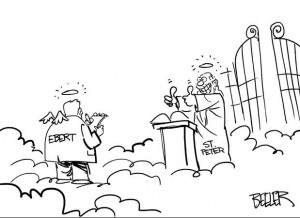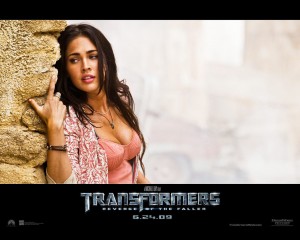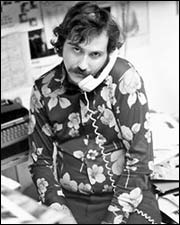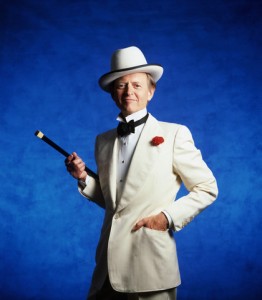Following his much-discussed piece on Gimmickry in Theater, Michael F. Fisher considers the role of the critic, and how theater criticism in Philadelphia compares to the best pop culture reviews.
One:
Work sucks
Two:
Roger Ebert was the greatest writer of (at least) the last one hundred years
Three:
Is the critic necessary?
Four:
Your Movie Sucks
Five:
Hero worship is boring
Six:
Honesty in its purest form
Seven:
Updike’s neutered sense of fairness
Eight:
Let’s meet at Quig’s
One: Work sucks
I have only one bookcase. At present it is at full capacity, housing my and (my girlfriend) Angela’s combined fiction and drama collections, plus her not-insignificant J.R.R. Tolkien collection, which takes up the entire bottom shelf, which is where I used to keep my records.
Some of my records are in a box in the corner and some are stacked in the belly of the TV stand—but I’ll probably move those soon, since I know from seeing High Fidelity fifteen times that that’s bad for the records. You know, ’cause it gets really pressured?
Thus: there is no more room in my room for books. Thus: my (also not insignificant) collection of nonfiction and biographies remains in a big box in the garage, waiting for me to get another bookcase or at least to bring them in from the cold for once. I can hear them cursing me in the night.
In that box lies my copy of Roger Ebert’s inspiring 2011 memoir Life Itself. If that book were here right now, I’d start this essay with some quote or other from within its pages to illustrate the late critic’s genius, to impress you to your knees with his delightful verbiage, his invaluable human insight, his capacity to make you feel like he’s sitting down next to you and talking to you when you read him. But that book is not here. That book is in the garage
That book is in the garage and I am on the bed. And while the bed is not really so far from the garage, I am so very comfortable in the bed, with my shoes off and my back pillowed and my (girlfriend’s) laptop resting (appropriately) atop my lap and my beer within reach and the sounds of Ben Folds Five’s stellar 1995 self-titled debut album tickling about my ears, that to get up, put on shoes, probably a jacket, go outside, go into the garage, root around in a box for the aforementioned volume and then do the whole bit again backwards just to find myself where I comfortably am now seems ludicrous. I mean I’ve been working all day for crissakes.
Some days—well, most days—I worry that I will never become “a writer” in the sense of someone who earns a paycheck for arranging words in some appealing order for other people’s enjoyment/benefit/whathaveyou. Not because I fear that I am not a talented writer; I worry because I don’t treat writing like a job. I don’t turn off the television and hunker down, free of distraction, with nothing but Microsoft Word and the keys at my disposal and really work at it. It’s hard for me to do that because I know, at a certain point, without those distractions, it will begin to feel like work. And work sucks.
But if writing is your job—if you are someone who earns a paycheck by arranging words—then it is work. And while the work that a writer does is way cooler than my work, it’s still work, which, as we know, sucks.
Two: Roger Ebert was the greatest writer of (at least) the last one hundred years.
Ebert was not only good at his job, and he not only liked his job, but he liked work. He liked to shut the world off and commit himself to making the deadline. He liked to bang the typewriter keys and to damn all distracting periphery (sure there was less of it then, but a man’s mind still wanders). He was a writer, for a living, and he was a workman.

Ebert wrote at least five movie reviews a week for more than forty years, wrote constantly even up to his death last month. And that’s to say nothing of his longer commentary pieces, his Great Movies reviews (three books’ worth), his novel (Behind the Phantom’s Mask), his cookbook (The Pot and How to Use It), and the book that’s in my garage, Life Itself. His work was analytic without being highfalutin, brutally honest without being cynical. He more or less inspired me to want to write for a living.
And he was a movie critic.
No writer I have ever read has been more fun to read, more informative, more engaging, more human, more moving than the guy who reviewed movies for the Chicago Sun-Times for the last forty-six years.
Three: Is the critic necessary?
Adrienne Mackey—artistic director of Swim Pony Performing Arts—keeps a blog where she writes about all sorts of things, but mostly art, theater, and the creative life. The blog is a gift; Mackey’s writing is always insightful and provocative, and it’s always interesting to read commentary from creative people on the creative process (and its outcome). She recently posted about critics, a meditation on their usefulness (or lack thereof) to the artist and the audience.
If you believe that the role of the critic is to encourage artists and wrangle audiences, Mackey’s experience is illuminating:
Is [criticism] for the artists? Is it a chance for an informed and outside eye on the medium to offer perspective on our work in context of the whole?
Is it for audiences? Do they need a medium through which to evaluate the multitude of cultural intakes they might participate in?
Or is it more functional? Is it a way to separate the good from the bad and point out that for the world to see?…
“On each of these levels, I think I disagree that the current system is working, at least in terms of the work I like, the work I believe in making and seeing.
“My own experience with review has been this: it is totally unaligned with my sense of my own work.
“I have had pieces that I loved that were panned. I have had pieces I thought were weaker and not ready for audiences that get raves. Mostly, it feels really random.”
Mackey wonders if the critic is a necessary part of the artistic realm. If he neither attracts nor deters an audience; if he misunderstands the work, or judges it using subjective, closed-minded criteria; if his words have no correlation with either the quality of artistic output or the number of tickets sold; then what is the critic’s purpose?
She’s absolutely right in determining that the critic is not as essential as we may think, or at least not in the same way we traditionally believe. If a critic’s work has no effect on either the consumers or the proprietors, then why does he get a free ticket?
Mackey is a gifted artist, one for whom I’ve had the pleasure of working. But while I cannot dispute her observations, I will venture to argue that she forgot one function of the critic in her analysis, which is, simply, to be read. Though we don’t often think of it this way, criticism can be (and should be and is) an end in itself.
Four: Your Movie Sucks
In his lifetime, Roger Ebert published three books full of his negative reviews, each bearing such unsubtle titles as I Hated, Hated, Hated This Movie, Your Movie Sucks, and A Horrible Experience of Unbearable Length. These books house some of the most enjoyable reviews Ebert ever wrote. In the introduction to the third book, he writes that “it is my task to write a review that will be enjoyable to read, even if the reader has no interest in the film and no plans to ever see it.” He also paraphrases his old partner, Gene Siskel, who used to say he was a newspaperman first and a film critic second. His task, as he saw it, was to write something that sounded like a story.

The title to that same book came from Ebert’s review of Transformers: Revenge of the Fallen, which begins thus: “Transformers: Revenge of the Fallen is a horrible experience of unbearable length, briefly punctuated by three or four amusing moments.”
Sounds like a lead to me.
In my sweet, short life, I have spent many, many irredeemable hours pouring over Roger Ebert’s bad reviews, imbibing his scornful witticisms like vitamins. As someone who cared about the art of film, Ebert hated to see the medium violated by the cheap, the mindless, the phony. His passion revealed itself in bad reviews almost as well as (better than?) in good ones. You could feel his righteous ire through the computer screen. Even his apathy burned with journalistic wit. It was as if shitty movies were premium fuel for his typewriter.
Anger brings out the passion in all of us.
I’ve never planned to see movies like Mad Dog Time (Ebert: “the first movie I have seen that does not improve on the sight of a blank screen viewed for the same length of time.”) or Dirty Love (“Here is a film so pitiful, it doesn’t rise to the level of badness”) or Sour Grapes (“I can’t easily remember a film I’ve enjoyed less”), but those movies now hold a special place in my cinephilic psyche. I will remember them fondly even though I’ve never seen them, because they inspired one of my favorite writers to just riff like crazy. And the results have never ceased to be entertaining.
Yes, entertaining. Roger Ebert, like all the people he critiqued, was an entertainer.
Five: Hero worship is boring
“Hell, the only difference between you musicians and us rock writers is that people can see you doing what you do. I can’t go up in the street and say: ‘Hey, honey, dig my far-out John Lennon review,’ because she can say, ‘Kiss my ass, Jack, how I know you wrote that?’”
That’s the great rock critic Lester Bangs talking to the great-ish power pop group The J. Geils Band (you know: “Mah angel iz thuh cennafold!”) in 1974.
Lester Bangs should not have been a rock critic. He was a beer-drinking, drug-taking rock and roll fan. He was the dude that would hurl insults at the band if he thought they were garbage. His interviews were interviews in the same way that you and me getting drunk at the bar and talking about music is an interview. Yet he is still the most famous rock critic that ever lived.
You might be quick to propose that such is the case because of his outrageous personality. But it is precisely because that personality bled onto the page that he was so important.
The above quote is from a piece titled “My Night of Ecstasy with the J. Geils Band.” The piece begins with Bangs freely admitting how bored he is interviewing these guys (“It was so sober it was sombre, it was dreary, it was death”). Once the mood lightens and he compares rock musicians to rock writers, lead singer Peter Wolf offers Bangs an opportunity.
“All right,” says Wolf, “then why don’t you come onstage with us tonight and do your thing and let’s see what happens?”
Bangs accepts the challenge and the rest of the piece goes like this:
Bangs searches his apartment for an electric typewriter to bring to the show.
Bangs talks about how amped he is to be onstage (“My date arrived wearing a wig and I didn’t even notice, that’s how excited I was. I could barely concentrate on All in the Family, that’s how excited I was.”).
Bangs waits impatiently through the band’s “interminable” set.
Bangs goes out onstage and taps his electric typewriter along to the encore (and only J. Geils song title mentioned in the entire piece), “Give it to Me.”
Bangs rejoices with friends backstage.
Bangs Bangs Bangs. That’s it. He doesn’t tell you how the show was or what songs they played or how awesome Peter Wolf’s dance moves were. He just talks about himself the whole time.
Is it criticism? Not really, but it sure is fun to read. And you know what? I actually liked the J. Geils Band more after reading it.
Pure excitement brings out the passion in all of us.
You’re human and you have eyes, so I’m assuming at some point in your life you’ve seen a movie star on a talk show. You’ve probably seen many of them. How exciting are those interviews? Do they not consist of a bunch of inconsequential questions about meaningless miscellany, wrapped around an anecdote, capped by a plug for whatever piece of crap the star is promoting? Is that in any way interesting?
Talk show hosts are not journalists, but their genteel manner toward celebrities has adversely influenced the way actual journalists interact with their famous subjects. When was the last time you read an interview—a real interview, conducted by a non-talk show host—with a celebrity in which they actually revealed something about themselves? In which they said something provocative or surprising?
It just doesn’t happen that often. We’ve spoiled our famous artists by treating them like they’re more than human. This is how the ego develops.

Lester Bangs was never intimidated by anybody, celebrity or not. He understood what the gut-wrenchingly reverent journalists of today continually fail to grasp: Everyone you interview—rock star, movie star, stagehand, chauffeur—is human. They are just like you. They screw and shit and eat Pringles, and they should be dealt with as such.
In one of his most famous pieces, titled “Let Us Now Praise Famous Death Dwarves,” Bangs interviews his favorite subject and off-and-on hero Lou Reed. It’s not hard to get a goofy quote out of Reed—the man’s been certifiably out of his cerebral cortex since, well, ever—but the way Bangs relentlessly fucks with his hero-subject is positively inspiring. Bangs calls Reed a motherfucker, asks if he fucked David Bowie, and accuses him of lying about which drugs he’s taking. Reed battles back every step of the way: “You really are an asshole,” says Reed to Bangs. “You went past assholism into some kinda urinary tract.”
But when Reed’s road manager butts in and says it’s getting late, Reed says, “Oh, it’s fun arguing with Lester,” and proceeds to keep the great critic until three-thirty in the morning.
Blind reverence and hero worship are boring.
[Lester Bangs quotes are taken from Psychotic Reactions and Carburetor Dung, ed. Greil Marcus]
Six: Honesty in its purest form
Before we continue, a reading from the book of Ebert:
“I hated this movie. Hated hated hated hated hated this movie. Hated it. Hated every simpering stupid vacant audience-insulting moment of it. Hated the sensibility that thought anyone would like it. Hated the implied insult to the audience by its belief that anyone would be entertained by it.”
That’s from what is possibly Roger Ebert’s most famous review, that of Rob Reiner’s North (1994). I’ve read this bit countless times, but suddenly what I’m struck by is the punctuation, or lack thereof. There are no commas in this paragraph. There should be—by my count—at least seven. The effect is that it reads less like a review and more like a rant; the adjective collage of “simpering stupid vacant audience-insulting” recalls the stream-of-consciousness blabbering of Daffy Duck. I feel like, had I asked Ebert about this film right after he saw it, I would get this exact set of words spat at me with madness and exhaustion, the very sounds themselves being bereft of punctuation.
True passion is honesty in its purest form.
Seven: Updike’s neutered sense of fairness
In her critique of theater criticism, Mackey writes that even if critics did help to put asses in the seats, she’s still not sure if it’s worth having them around, “[b]ecause I don’t believe that one person is a stand in for all people.”
Again, the sentiment is unimpeachable, but there’s an implied assumption afoot about critics and audiences that I think is incorrect. Though potential audience members may read reviews and may even be swayed by them, I do not think that any of them hold the critic’s word to be gospel. I doubt that they hold his recommendation in higher esteem than they would that of an intelligent friend whose opinion they value. And I don’t think that any critic (unless he’s got a head the size of Mr. Met’s) thinks he’s a stand-in for all possible points of view.
A critic is and should be an audience member with an opinion who happens to write well. That’s all.

When Phindie founder and shopkeeper Chris Munden asked me to write a stage review for him, he sent me a link to an abbreviated version of dead author John Updike’s guide to reviewing literature and art. Updike’s suggestions range from common sense (“Try to understand what the author wished to do, and do not blame him for not achieving what he did not attempt”) to condescension (“If the book is judged deficient…Try to understand the failure. Sure it’s his and not yours?”). The overarching sentiment is a neutered kind of fairness: “Better to praise and share,” he writes, “than to blame and ban.”
I wrote a review for Phindie—it happened to be a positive review—using these guidelines, and I think I was successful. I was honest about my admiration of the play, and I hope that if anybody read the review they got the impression that it might be worth their $35 to check it out. But I look at that review now and it seems lifeless, pasteurized, blandly intellectual. It recommends a play without being enthusiastic about it. It lacks personality; a piece of software could have written it. And unless you know me personally and know my feelings about theater, I’m not sure this review would do you any good.
My belief is that Updike wrote those rules because he believed in the model that Mackey decries: he believed that he was a stand-in for all people. Thus, the freedom of the critic to be an honest-to-goodness writer is whittled down so as not to risk offending anybody. By setting rules such as Updike’s, we forbid real human emotion from getting in the way of dry, respectful analysis. I can’t think of anything more boring.
Eight: Let’s meet at Quig’s
Theater critics in Philadelphia are in a unique and, I would say, unfortunate position. The theater community is relatively small, and, as is often the case with small communities, it behaves incestuously. Everybody knows each other; therefore, there is a sort of implied embargo on scathing reviews (unless you’re Toby Zinman, maybe) because the person you ripped apart today might be the person you run into at Quig’s tomorrow night (does anyone still go to Quig’s?). It’s not that we need scathing reviews, per se, but the social contract in a small scene places a limit on the amount of honesty (and therefore of personality) that a critic can include in a review.

Conversely, film critics and music critics need (on the whole) have no fear, because it is rare that they will run into the people they write about. The only filmmaker with whom Roger Ebert had a professional relationship was Russ Meyer, maker of campy-as-fuck jiggle flicks like Wild Gals of the Naked West, Faster, Pussycat! Kill! Kill!, and Beyond the Valley of the Dolls (the lattermost written by Ebert). As a condition of their relationship, Ebert never reviewed a Russ Meyer movie. If something like that happened in Philly, there would be no more critics. And, as far as some theater artists are concerned, oh what a wonderful world that would be.
When there is no room for the unforgiving wit of Roger Ebert or the reckless abandon of Lester Bangs, there is no life in theater criticism. We’ve been intimidated into preserving the status quo, and in the process we’ve lost sight of what I think is the most important role of the critic—or indeed of any writer—which is to entertain readers.
Adrienne Mackey is right to be exasperated with theater criticism. From an artist’s point of view, most criticism—even good, thoughtful criticism—is useless. Critics, therefore, should not be worried about offending artists; they will be offended or ecstatic or indifferent, but they’re not doing what they do for the critics’ benefit. Similarly, critics need not do what they do for the benefit of artists, or even those artists’ audiences. Critics should be concerned with their own audiences. Entertain them; give them something that will be worth their time. That’s what’s most important. Just ask a theater artist.
